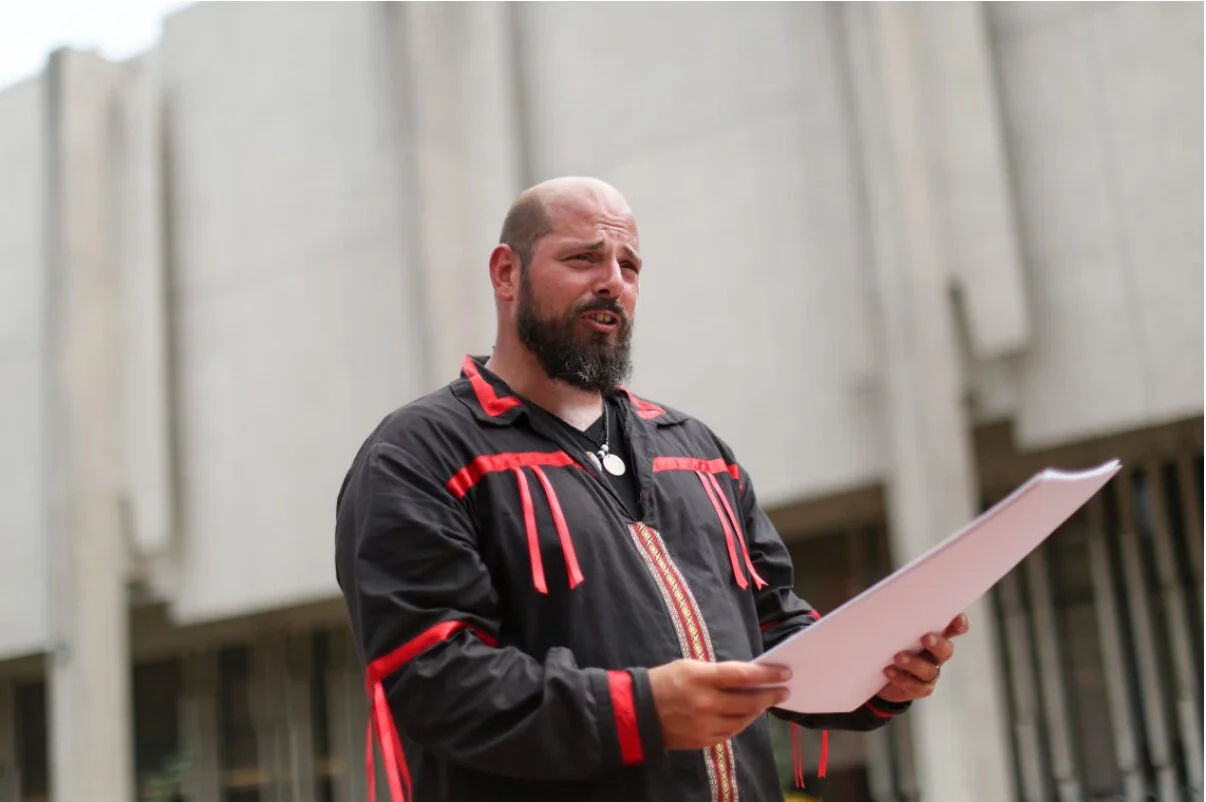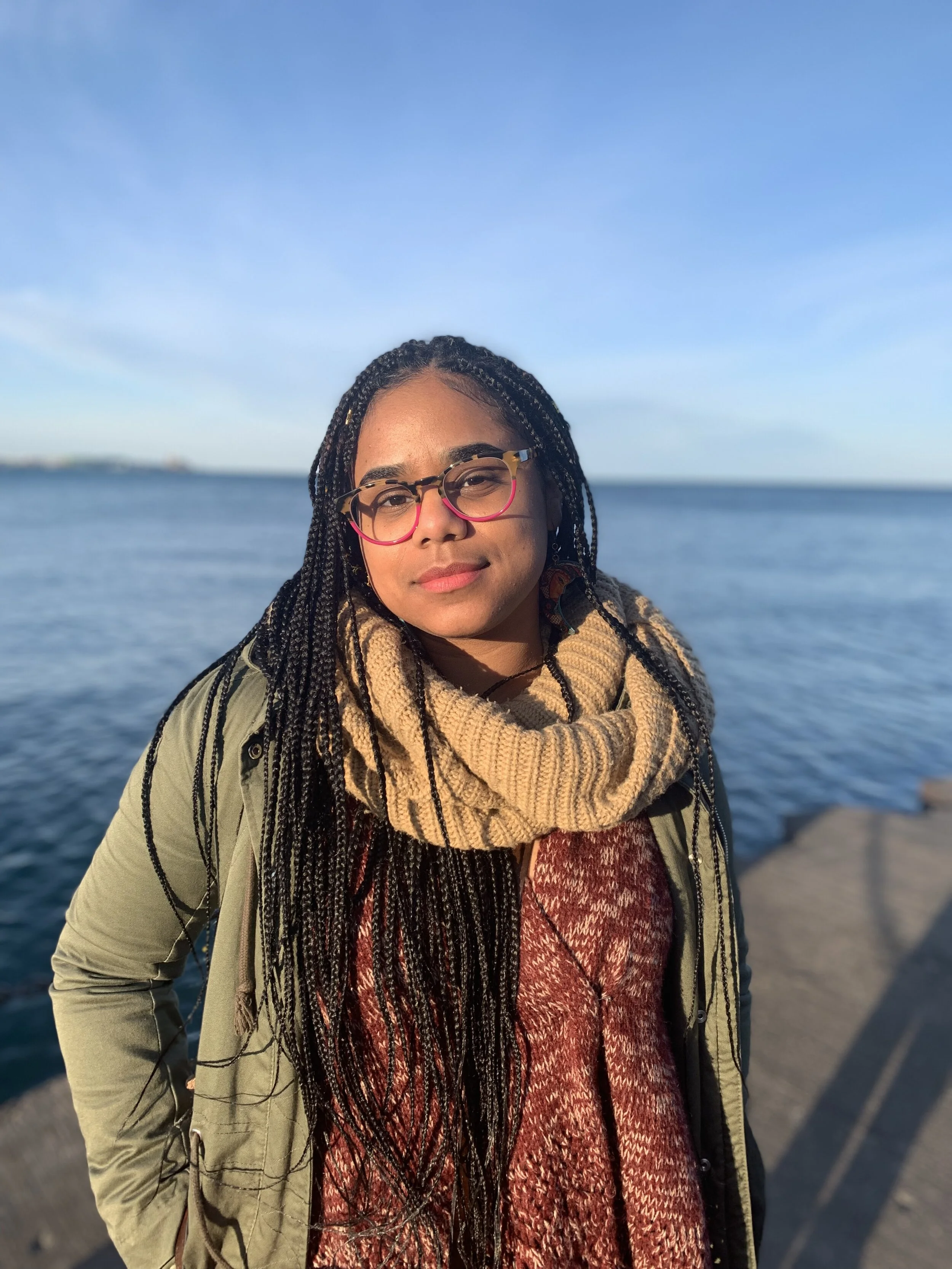Philadelphia Communities
“…Belonging can be an act of self-identification or identification by others, in a stable, contested or transient way. Even in its most stable ‘primordial’ forms, however, belonging is always a dynamic process, not a reified fixity, which is only a naturalized construction of a particular hegemonic form of power relations.”
-Nira Yuval-Davis, Belonging and The Politics of Belonging , p.129.
We acknowledge that the land on which we gather are the ancestral lands of the Lenni Lenape people, whose presence and resilience in Pennsylvania continues to this day. We take this opportunity to honor the original caretakers of this land and recognize the histories of land theft, violence, erasure, and oppression that has brought our institution and ourselves here.
“If we think of territorial acknowledgments as sites of potential disruption, they can be transformative acts that to some extent undo Indigenous erasure. I believe this is true as long as these acknowledgments discomfit both those speaking and hearing the words. The fact of Indigenous presence should force non-Indigenous peoples to confront their own place on these lands.”
– Chelsea Vowel, Métis, Beyond Territorial Acknowledgements
Who gets to belong in a community? Who is excluded? How do those that are excluded reclaim their space? For Weeks 1 and 2 we focused on these questions to address the politics of belonging in Philadelphia. Sites such as the Royal Theater and the Lenape Rising Nation River Journey have been sites of erasure and reclamation for black and indigenous communities. We explore how Black, Indigenous, and Immigrant groups have pushed for their existence and remembrance in Philadelphia.
Belonging in Philadelphia
Questions to Think About
Who gets to belong in Philadelphia? What communities and what people are seen as valuable? What communities and people are seen as disposable? What historical sights are the ones that are deem worthy of saving/preserving?
As you navigate the pages below, these are the questions we invite you to keep in mind. Think about the Black communities of this powerful city that are being pushed out. Think about the indigenous people of this land that are pushing back against erasure. Think about the steps and actions that can be taken to fight for Black, Brown and Indigenous communities that have called this land and city home to continue to belong here.
About
Who is this site for?
This site is created to document the ways in which communities of color have endured but also resisted marginalization. Starting with a land acknowledgement of the Lenni-Lenape people, we seek to bring attention to the genocide, land theft, deportations, and other forms of state-sanctioned violence that people of color have endured. Despite these challenges, our people have survived through strategies of resistance. We seek to disseminate these strategies in solidarity with other communities who are engaging in their own processes of reclamation.
our weeks
In Week 1, “Who Gets To Belong,” we address the ways in which Black and Brown communities in Philadelphia have been pushed out and are excluded from belonging. Systems such as gentrification and Penntrification have been responsible for pricing out tenants and weakening thriving cultural and artistic spaces.
Week 2, “Resistance & Reclamation,” focuses on how communities have pushed back. From a neighborhood in Philadelphia which teaches communities how to resist deportations and ICE to understanding the Black spatial imaginary, we look at how Black, Brown, and Indigenous communities have created sites of reclamation and resistance.
The pages to the left, and linked above, offer complete recaps of each week. These pages include syllabi, readings, in-class notes, and other multimodal materials.
Philadelphia Communities:
A Podcast Mini-Series
In this podcast mini-series, a sequence of interviews, we hear the stories behind the histories of what is currently Philadelphia and think about ways of engaging with history and space. We interviewed Adam DePaul, a leader in the Lenape Nation of Pennsylvania, and Kalela Williams of Black History Maven. We hope that our podcasts serve as a starting point for our listeners to learn about what is currently Philadelphia and our relationship to this city, this land, and this community.
Part I: An Introduction to the Work
Summary
In this episode, ABC students Jessica Ch’ng and Rehana Odendaal discuss the theme of our working group, communities of present-day Philadelphia, and provide an overview of our syllabus and podcast series.
Read the Transcript
Part II: An Interview with Adam DePaul, Lenape Nation of Philadelphia
Featuring
Summary
In this episode, Penn Graduate School of Education students Jessica Ch’ng and Kareli Lizarraga interview Adam DePaul, a leader in the Lenape Nation of Pennsylvania. In this conversation at the Lenape Garden, Adam discusses his leadership in the nation and his personal journey with identity. He describes the contradictions of governmental recognition for indigenous peoples, bridging culture with academia, and his hopes for the nation.
Read the Transcript
Supplemental Readings and Listenings
All My Relations Podcast by Dr. Adrienne Keene (Cherokee Nation) and Matika Wilbur (Swinomish and Tulalip)
Coulthard, G. S. (2014). Red skin, white masks: Rejecting the colonial politics of recognition. Minneapolis, MN: University of Minnesota Press.
Norwood, J. R. (2007). We are still here: the tribal saga of New Jersey’s Nanticoke and Lenape Indians. Moorestown, NJ: Native New Jersey Publications.
Part III: Loving Black & Local Philadelphia History
Featuring
Summary
In this episode, Part III of the Philadelphia Communities mini-series, Rehana Odendaal interviews Kalela Williams, a local history enthusiast and founder of the Facebook page Black History Maven. Their conversation at the Free Library of Philadelphia covered Kalela’s interest in African American history, some of her favorite pieces of Philadelphia history as well as conversation about why the past matters to Philadelphia Communities today.
Read the Transcript
Find out more about Kalela and her work on Black History Maven










